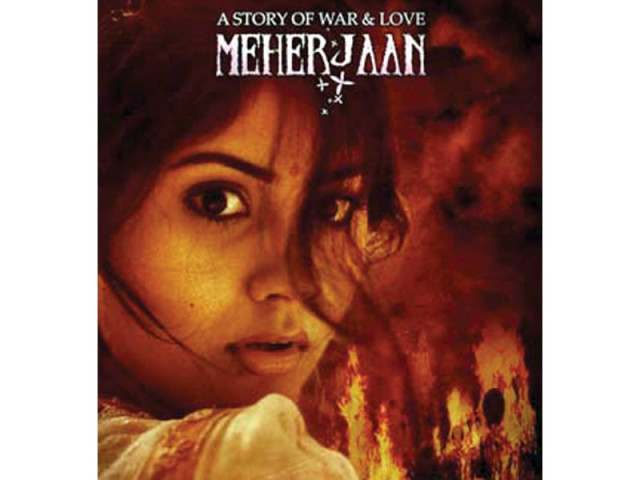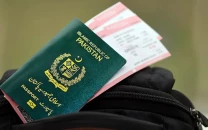Film review: 'Meherjaan'
Meherjaan is primarily, and more interestingly, about female sexuality against the backdrop of brutality.

Meherjaan is primarily, and more interestingly, about female sexuality against the backdrop of brutality. It’s about women discovering themselves as they are engulfed by a war, reclaiming themselves as men around them are consumed by battle, and consolidating their narrative as they look back at an essentially masculine affair.
The movie’s strong central plot — the love affair between a Pakistani soldier and a Bengali girl — is diluted by its peripheral characters. The young Meher, played by Shayna Amin, is insipid when compared to her two aunts — the rape-survivor Neela, played by Reetu Sattar, and the effervescent Salma, depicted by the director Rubaiyat Hossain herself. But the three women together provide an aesthetic narrative of a war which, not surprisingly, has ruffled quite a few feathers in the director’s home country, Bangladesh.
Not all three female characters are equally strong though. While ditsy Meher strolls in the woods, Neela is reclaiming herself, and her sexuality, after being raped by Pakistani soldiers. While Meher is largely passive, waiting for her Pakistani-soldier-in-crisp-khakis to rescue her, Salma demands to her father that she is married off, and proposes to several men herself. Neela and Salma are empowered, while Meher is a characterless shade. She gains a voice, and a dimension to her character, only after Wasim Khan (played by Omar Rahim) walks into her life. The affair, however, is trite and two-dimensional and Meher evolves little until Wasim’s departure. Hardly surprising then that the older Meher — a middle-aged, sculptor played by Jaya Bachchan — bears little resemblance to her younger self.
The two aunts not only engage the audiences, but also surprise them with their aggressiveness, their unabashed advances, and the comfort they have with their own skin. Unlike Meher, they are neither apologetic, nor do they seek redemption from outsiders. Despite being on the sidelines, they managed to hijack the movie from Meher.
The movie’s strength — its women and their self-discovery — also incurs the audiences’ ire. Critics claim that in its quest for depicting an ‘alternative narrative,’ Meherjaan glosses over the tangible brutality of the war. It ignores the plight of the women who were raped and butchered, and almost romanticises the enemy, even if it is depicted by a defected soldier.
Whether the criticism is warranted can only be explored when one questions what the director actually set out to do. Yes, Meherjaan is set in a war — and no less than one that leads to the formation of the nation-state of Bangladesh — and its characters evolve when confronted with the war, but is it about the war?
In her Director’s Note, Hossain claims, “The purpose of Meherjaan is to break the glorious narrative of national history and open up a modest avenue to explore perhaps, not only one or two, but multiple narratives of war.” The quest is ambitious, but Hossain’s canvas is restricted; there is little depiction of the war and its complementary goriness — a subject that is intrinsically complex. Let’s not be mistaken — Meherjaan is no national documentation, and Hossain has no responsibility to document the actual war, but relegating all of it entirely to the background appears to be a conscious decision. Hossain seems far more interested in women and sexuality — hence the peppering of literary and academic references throughout — and does not shy away from saying that “history is always a creation of the present.”
Meherjaan, therefore, is the creation of a modern, Bangladeshi woman with a strong academic interest in feminism and sexuality. It’s a movie about sexuality in the time of war, and feminism as it evolved during that period. It would have possibly been received far more appropriately, and evoked little controversy, if it had claimed to be so, and not a ‘controversial’ war-time movie about “loving the other.”
Published in The Express Tribune, Sunday Magazine, June 17th, 2012.



















COMMENTS
Comments are moderated and generally will be posted if they are on-topic and not abusive.
For more information, please see our Comments FAQ